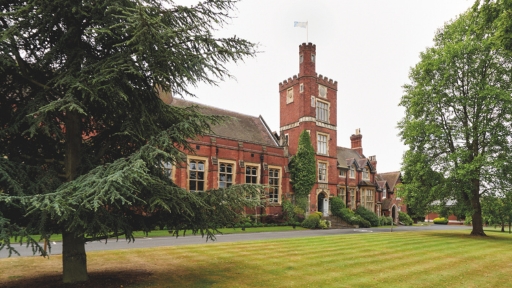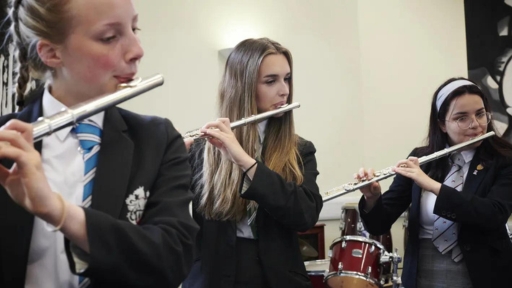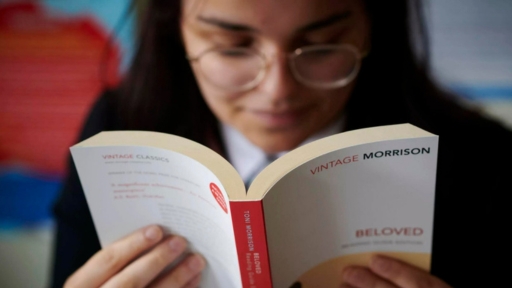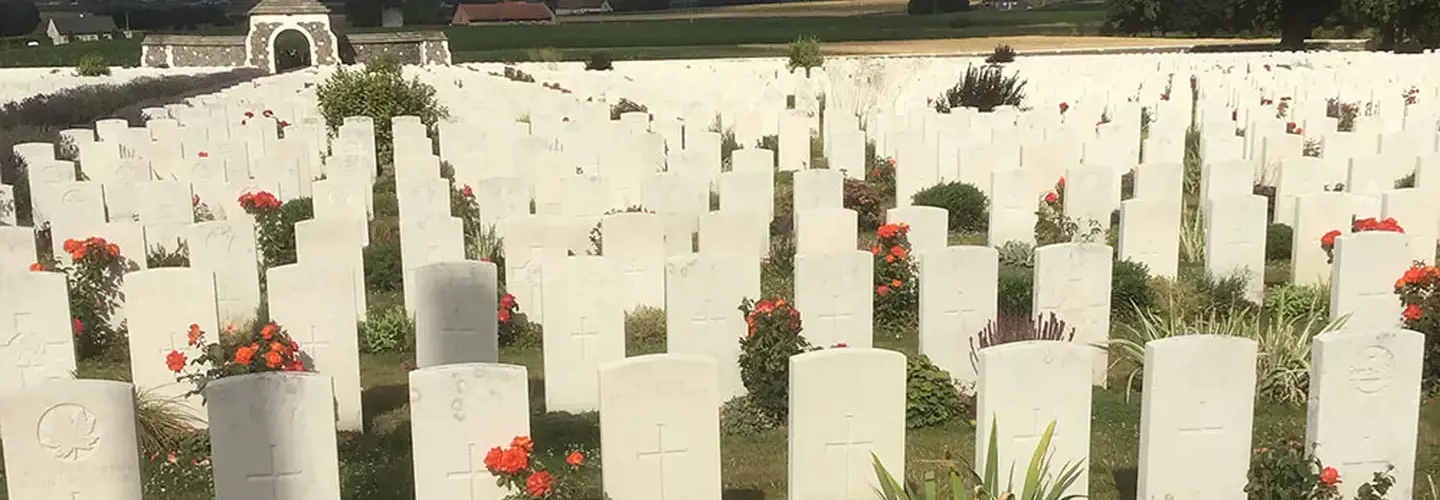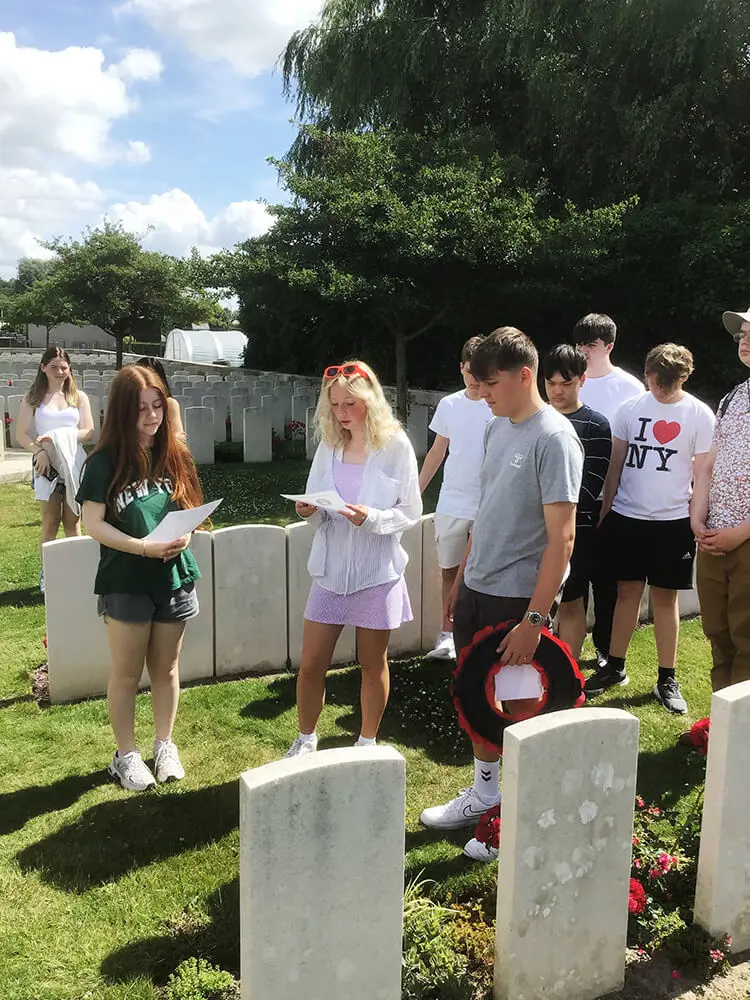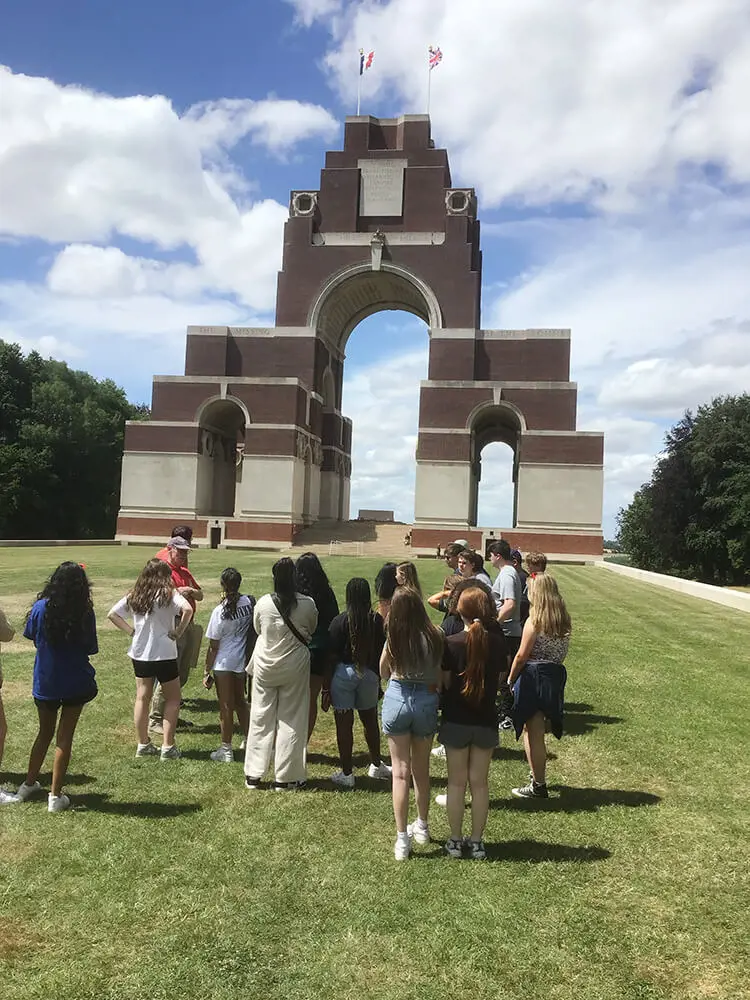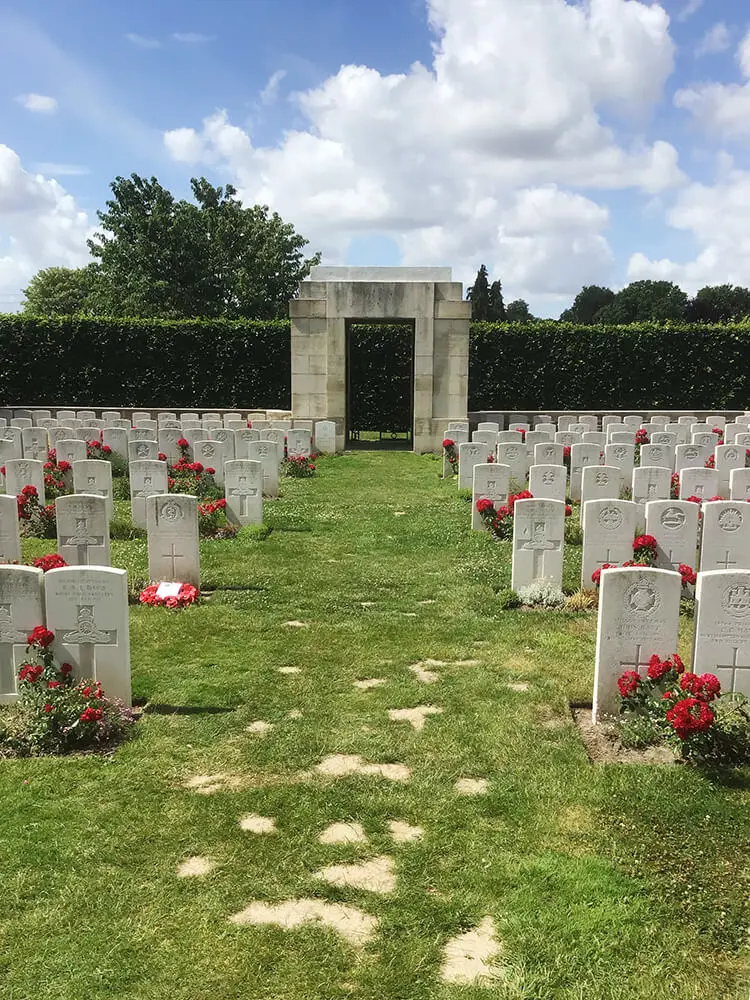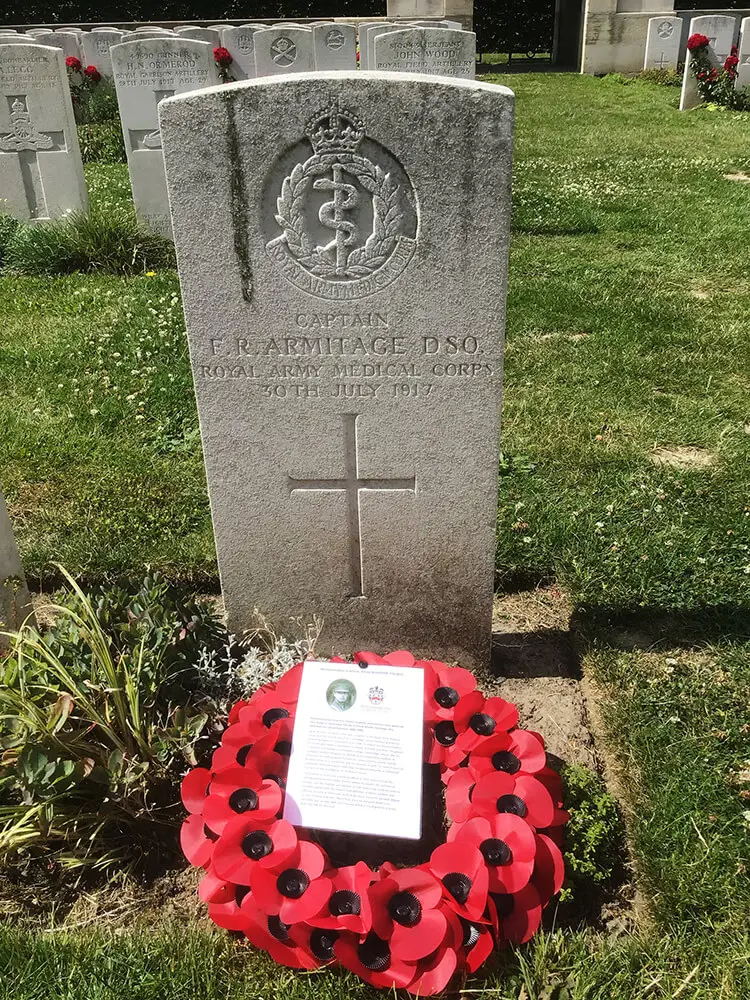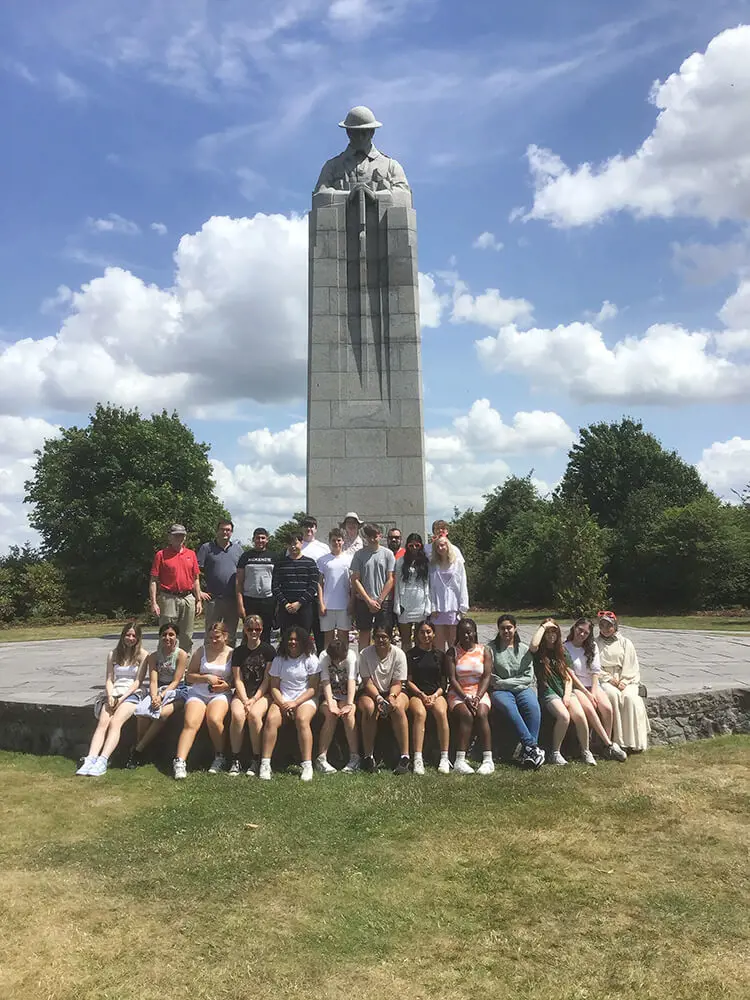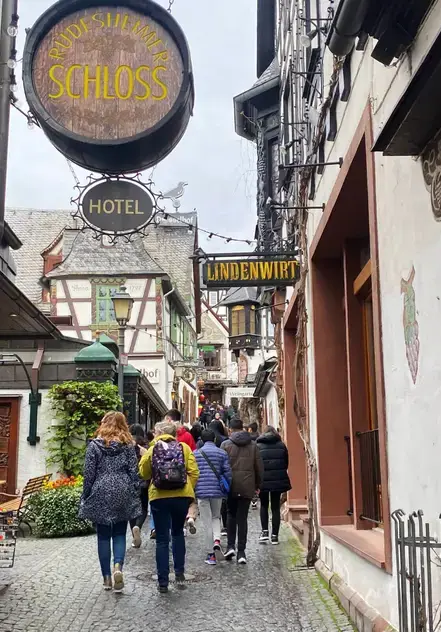The Battlefields Trip is an academic trip to support the study of the First World War at IGCSE. Students visit all the key battlefield sites around Ypres and the Somme. This trip will run again in July 2024.
Battlefields Trip
Charlotte, Nathan, Natasha and Simran recall their experience and memorable moments ...
Sunday began with an early start at school and a long journey to Belgium, we arrived at our hotel in the centre of Ypres on Sunday afternoon. Before long we had already gathered again to enjoy the music that would begin the march to the Menin Gate to carry out the daily Last Post ceremony. We then walked as a group to this hugely symbolic landmark, giving us chance to reflect on its powerful meaning, which our tour guide explained.
Monday was our first proper day venturing out in Belgium. It was an early start, but we were all excited for the day ahead of us. First we stopped off at the Bayernwald German Trenches which gave us an insight into how the Germans developed and constructed trenches differently to the British. An hour later we arrived at Spanbroekmolen Crater which is the site of the largest of 19 mines blown by the British Army on 7th June 1917. This crater today is filled with water, so passersby may just see a simple lake, yet it is actually the effect of a horrific, but effective, military strategy. Later that day we walked to Menin Gate where the daily act of Remembrance takes place, including a two-minute silence and the playing of the Last Post.
We spent Tuesday studying the Battle of the Somme in France. We visited the Indian Memorial at Neuve-Chappelle and the Ayette Indian and Chinese cemetery and were given insight on the soldiers that had lost their lives for the British Empire. Our guide led us on a journey to retrace the path of the Tyneside Scottish and Irish regiments of the 34th Division on 1 July 1916. Here we gained a sense of the reality of what the brave soldiers had to go through. We learned about the first day of the Somme, Kitchener’s army, as well as the military disaster that happened here. We stopped for a lunch break at the Ulster Tower Café, before continuing our tour to Thiepval. It was here that we laid a wreath to an Old Wulfrunian who died in the war: Alfred Bendall.
On the last day we first woke up at 7:30am and had a lovely breakfast. We then checked out of the hotel and were on the coach on our way to Tyne Cot British Cemetery. When we arrived we were welcomed with a warm sense of a British country garden and everything looked so well kept and peaceful. We were surrounded by colourful flowers and the white clear marble head stones of the commemorated soldiers. Afterwards we went to the Passchendaele Museum and we got to experience what it was like going into the trenches and we saw how the soldiers dressed and the weapons they carried.
Frank Rhodes Armitage 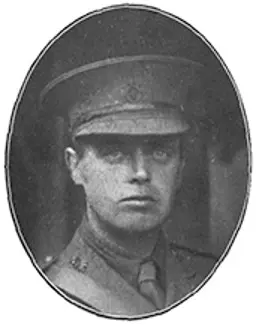
From the Wulfrunian, December 1917:
FRANK RHODES ARMITAGE (1893-1896: 34), M.B., D.S.O Captain in the R.A.M.C was the second son of Dr. J Auriol Armitage, whose medical practice in Wolverhampton he succeeded to in 1908. His later education was received at Oundle School, where he became head of his house and made a reputation in cricket, football and fives. Thence he gained a classical scholarship to Pembroke College, Cambridge, where, like his youngest brother Douglas (who has been missing since the battle of Loos, September 1915) he was secretary of the Martletts Society and of the College Mission. Both at the University and at the London Hospital he distinguished himself as a cross-country runner, but his greatest fame as a sportsman rests on his prowess at golf. For several years captain of the Wolverhampton Golf Club, he played brilliantly at Tettenhall and was not unknown at St. Andrew’s. He went to France as a medical officer in the R.F.A in 1915 and received the D.S.O shortly before his death. His coolness in danger, the fearless acceptance of risks when his help could be given to another, gained him the respect and affection of men and officers. So long as there was work to be done he never allowed fatigue or want of sleep to stay him. More than once he escaped death very narrowly, and on July 30th he was killed in his dugout by a heavy shell that fell on the roof.
Alfred Ernest Bendall 
From the Wulfrunian, December 1916
ALFRED ERNEST BENDALL, second son of Mr F A Bendall of Bilston, who was killed on the first day of the great Somme battle, July 1st 1916, came to the school in April 1904, and left at the end of the summer term of 1912. For two seasons he was a valuable member of the 1st XI in football and for three years extremely useful both in bowling and batting to the 1st XI in cricket, his best bowling being specially good. Early in September 1914, he volunteered for service abroad and was accepted for the South Staffordshire Regiment. Being transferred to the 10th Battalion, Lincolnshire Regiment, he received his training at Grimsby and was later sent to France. He took part in much of the desperate fighting on the British front and spent his twenty-first birthday in resisting a heavy bombardment. On July 1st he was sent on some special signalling duty and was reported missing. Subsequently it was known that he had been killed in action.

